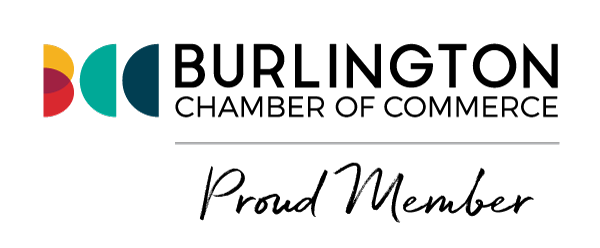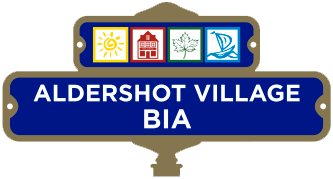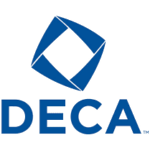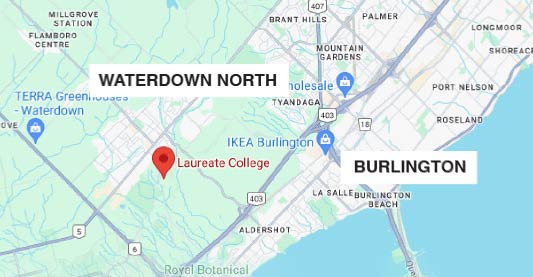Junior School FAQs
We charge an annual $400 textbook and resource fee. Chromebooks will be used for completing
work, research, and presentations. Chromebooks do not go home. They are stored in the
charging stations each night. Chromebooks are provided and are included in the cost of tuition.
The guideline for the amount of time allotted for homework is approximately 10 minutes per
grade. In Grade 1, students should practice their number sense (counting, skip counting,
adding) daily. Time reading with, or to, a child is also recommended. The following guideline
can be used to ensure students do not spend too much time doing homework. An over-emphasis
on homework can have negative results. Grade 2 – 20 minutes Grade 3 – 30 minutes Grade 4 – 40
minutes Grade 5 – 50 minutes Grade 6 – 8: 60 minutes
Homework best practices:
• Homework serves a specific purpose. It is not given just for the sake of giving
homework.
• Homework should provide practice of, and reinforce, skills and topics that have already
been taught
• Homework can also take the form of project completion and review for assessments
Most literacy programs no longer use a book for reading. Children are provided with reading
texts that are at each student’s reading level. “Decodable texts” allows each student to progress
according to his/her level. Students will bring home appropriate level materials to read.
Each classroom will have a class library with high-interest materials and appropriate reading levels.
On regular school days, students will wear the Aptus Performance Wear items (3/4 zip sweater, track pants, t-shirt). For gym class, they can change into their shorts and remove the sweater if it is warm enough. For formal days, students will wear the pants or skirt, white shirt, tie, black shoes and blazer.
After the year has begun, we plan to offer an optional activity every day during the lunch recess.
Field trips will be offered 4 – 6 times per year.
Yes, the LC Junior School lunch menu is available on our website. You can visit the Junior School
section to view the weekly meal options.
During the first year, we can expect an average class size of 1:10. The maximum number of
students in a class is 16 students.
TA in the classroom: TA will be hired to support a specific student who needs extra support. The
cost is paid by the parent. TAs will not be hired as general support.
Yes, we offer both before care and aftercare programs for students. Before care is available
from 7:30 to 8:30 a.m., and aftercare runs from 3:30 to 6:00 p.m. The cost is $10 per day for
either before care or aftercare, or $15 per day if both are needed.
Laureate’s academic program is best suited for strong students who display a high level of
interest in their learning and enjoy solving problems. We encourage our students to be active
participants in their educational journey. Our learners develop a deep understanding of their
learning profile and take ownership for the attainment of annual learning goals. They embrace
an inquiry-based approach with opportunities for environmental applications. Our program will
also appeal to students who enjoy enrichment in Visual Arts, Music and Drama.
Yes, Laureate College offers financial aid through Apple Financial Services, as we are a member
school. We also provide flexible payment plan options to support families. For full details,
please visit our https://laureatecollege.ca/fees-and-financial-aids-2025-2026/
Yes, Laureate College offers a variety of after-school arts enrichment programs, including choir
and piano (both with free trial sessions), visual arts, and drama/acting. Additional fees may
apply for some programs. For more information or to sign up, please contact Ixchel or Dr. Lina
Li.
Yes, busing is available. Fees are calculated based on the distance and pickup points. All
families who request the service will be placed on the busing roster.
https://www.cognitoforms.com/laureatecollege2/busingserviceregistrationform
Laureate College students will develop a strong awareness of the role we play in maintaining a
healthy planet. Students will be encouraged to pursue activities that support local
environmental initiatives. Citizenship and self-confidence are also two areas of focus. Students
will have opportunities to work with both elementary and high school peers as well as Sisters who live on the property. Intergenerational experiences teach children as well as seniors how to
communicate appropriately with others. A sense of comfort in these situations contributes to
better self-confidence.
Laureate College students will be challenged to attain the highest level possible. Each student
is pushed and supported according to their ability. Teachers will present new materials in a
condensed format so more time is spent doing application and less time copying from the board.
Our approach places an emphasis on thinking, inquiry, problem-solving and creating. Application
of new learning will take place outside in the natural woodland that surrounds the school. Our
goal is to produce well adjusted, metacognitive thinkers who enjoy contributing to a team
environment.
Each semester, students will have opportunities to participate in real-life problem-solving
activities that integrate learning from Science, Technology, Engineering, the Arts (including
Language Arts) and Math. We believe this is a better way to make school engaging. As students
collaborate and create their solutions, the teacher guides and coaches them and ensures that all
students contribute in a meaningful way. This is not a one-off scenario. This happens multiple
times throughout the year and may span several periods every day. STEAM projects are based on
the concepts learned in each grade. For example, a class that is learning about structures in
grade 7 may be asked to prepare a presentation for Burlington City Council where they provide
the best design for a new bridge that will be used on a city road. They will collaborate to design
the bridge and then build a prototype and illustrate its strength. A drawing of the design will be
completed as well as the oral presentation. This project encompasses all STEAM disciplines.
We can look at any class as a split class because all students are working at their individual
level. If a class has 10 students who are working on grade 5 expectations, they are all working
at their individual levels. Some students are low grade 5, some are mid-grade 5 and some are
higher level. A split class is the same. Language and Math programs are designed so skills are
taught at a slightly more complex level one year to the next. The skills are the same, just more
complex. All students will learn to improve according to their individual readiness. This also
pertains to music, art, and physical education. The only time it becomes more difficult is when
you have to teach 2 different curricula, however a focus on the similarities of both grades makes
this easier.
Using an outdoor setting for phys ed allows for more creativity in the program. Most sports that
are played in a gym can be played outside. When weather becomes a factor, games can be
modified and played in the indoor recreation room. A soccer field, multipurpose outdoor fields,
disc golf fields, and outdoor basketball court will be used whenever possible.
Each day, all students will have the opportunity to participate in house league sports activities.
School teams will be formed if numbers make it possible.
The school hosts several annual events including the Candlelight Concert, Spring Concert, Science Fair (in-house), Cultural Day (in-house), French Night (in-house), and Curriculum Night.
Curriculum Night is an opportunity for new parents to meet teachers and learn about academics,
extracurricular activities, the parent handbook, and more.
The entrance / admission process will involve an interview with both the parents and the
student. We want to take every step possible to ensure this is the right fit for your child. The
principal reads each student’s report cards and assessment reports that are provided and parents
may be asked to answer questions when concerns exist. An offer of admission is sent out only
after these steps are taken.
All Junior School students will belong to one of the four houses, which are the same as the
senior schoolhouse names. The Junior school students can become the “farm team” for the high
school teams.
The team names will be the same, but they will be 2 separate house groups. The points that
Junior School students earn do not count for high school house points. There may be times when
high school students will join the junior students who have the same house name.
School work and assignments that are completed by students can be posted online for students
to do while away. Teachers will help students catch up when they miss lessons due to absence.
However, student work is only evaluated for reporting purposes if it is completed at school.
Yes, boarding is available for G7/8 students. They will be housed separately from High school
students to ensure age-appropriate supervision and a supportive environment tailored to their
needs.
Parents are asked to report any absences or late arrivals to attendance@laureatecollege.ca or
call the school and leave a message.
For any snow days or school closures, the school principal will inform staff and faculty members
at 6:45 am. The Homeroom teachers will then inform their students accordingly.
The re-registration deadlines for the next school year are as follows: the early bird deadline is
January 30, the final deadline is March 20, and after April 20, a late fee of $300 will be applied.
All tuition, textbook and resource fees, registration and activity fees are non-refundable. The
application fee is also non-refundable.
Our focus: Developing the 8 Core Competencies of a Laureate student:
Citizenship
• Perspective
• Accepts differences
• Attributes
• Attitude
Communication
• Ability to share ideas
• Verbal communication
• Written communication
• Listening skills
Collaboration
• Teamwork
• Interpersonal skills
• Positive interactions
Critical Thinking
• Problem solving
• Analyzing information
• Informed judgements
Creativity
• Novel applications
• Innovative
• New ideas
• Outside the box thinkingAble to teach others
• Sees connections and bigger picture
Confidence
• Perseverance
• Self-regulation
• Resilience
• Growth mindset
Consideration
• Accepts feedback
• Self-reflection
• Metacognition
Consolidation
• Deep understanding
Each week, students will have a lesson on Character Education. This teaches social skills and
provides models of expected behaviors. Close supervision also ensures appropriate social
behavior.
The last thing we want to hear is that a student is bored and disengaged. A lot of teachers
misinterpret what the curriculum expectations represent. If the expectation states that students
must learn to row a boat with skill, you don’t stop a student from rowing because they reached
that level. You teach him to row faster and at a higher level so he can compete as an elite
rower. Math, Reading and Writing are like that. Science as well. The curriculum expectations do
not put a ceiling on the expectations. You can add many levels of complexity and challenge to
these subject areas, so the student is required to think at a deeper and deeper level. Teachers
will also use “Creative Thinking Classrooms” as a model and teaches students how to think and
solve complex problems. Yes, we will offer some of those supplements that you suggested but the
program we offer should allow students to feel challenged. The bottom line is we will do what is
necessary to bring students to a high level of engagement.
We will include some testing in our assessment practice, but we will also base a lot of our final
assessments on observations and discussions with the student. I believe that a more accurate
understanding of a student’s ability and understanding is obtained during “in the moment”
conversations and observations. A teacher can probe and question and challenge while the student is solving a problem and the responses provide a much better snapshot of their thinking
than a test. These moments tell us more than a student who has tried to memorize the
examples that were done in class and manages his stress while solving the problems with a
pencil. We will still have students’ complete tests but the overall mark that you see on a report
card reflects a balance of more than just tests.
The tuition will reflect the cost of living increase each year. You can assume there will be a 2%
annual increase or something close to that. The admission department here at Laureate is very
empathetic to families who need flexibility.







